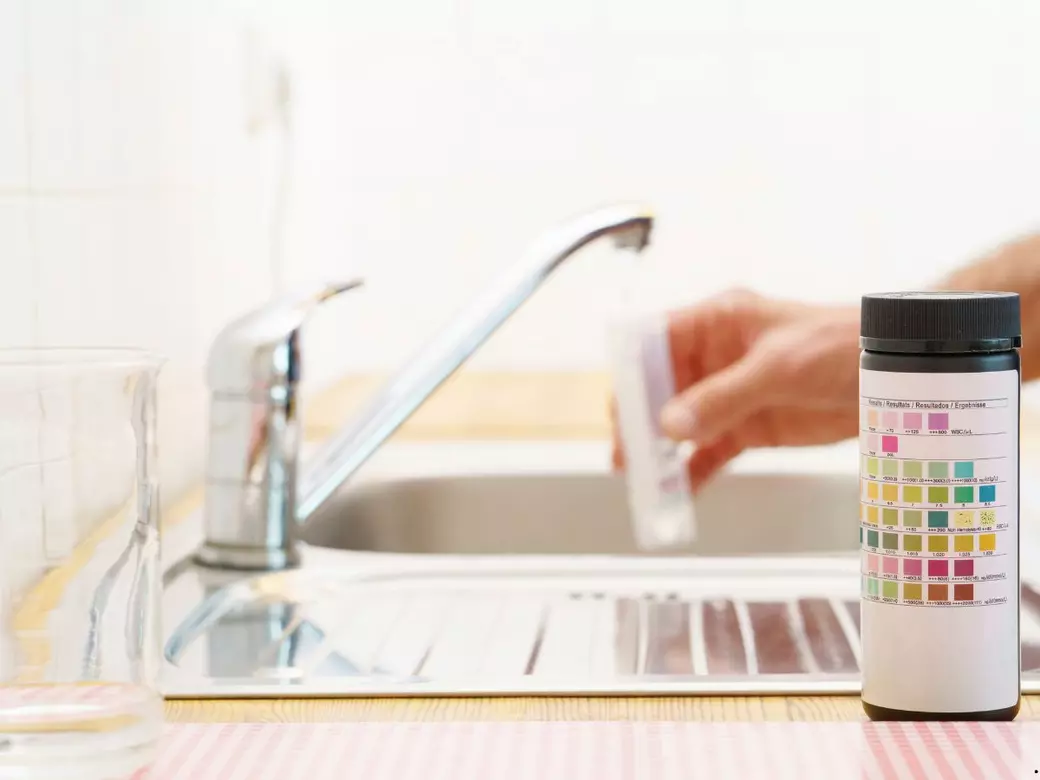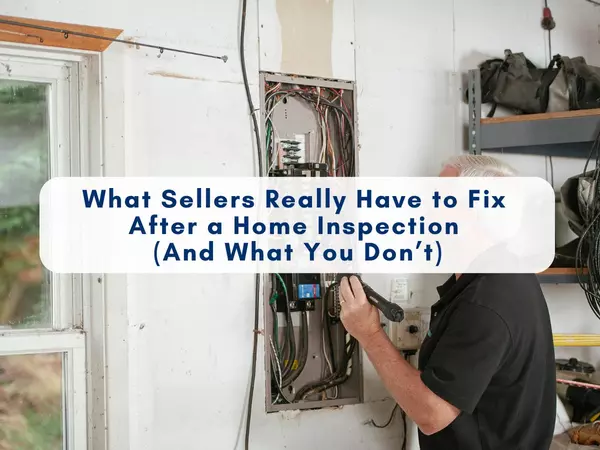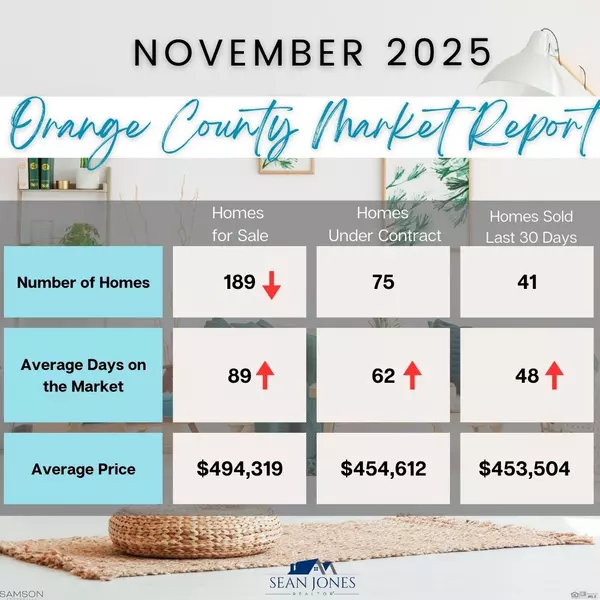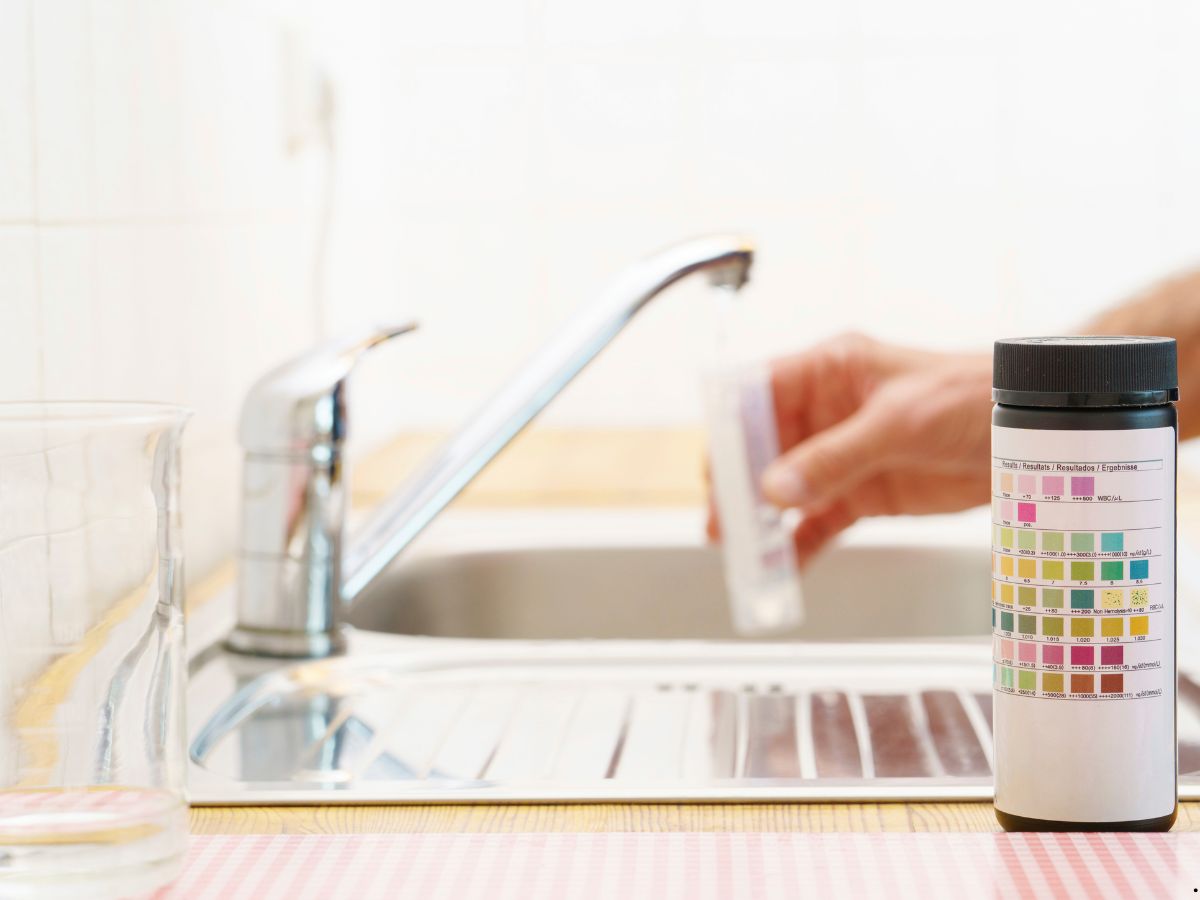Selling a Home With a Well? Here's What You Need to Know About Water Quality Testing

Selling a home with a private well in Central Virginia? There’s a good chance you’ll need to complete a water quality test before closing the deal. If you’ve lived in the home for years and drink the water every day without issue, this might seem unnecessary. But when it comes to real estate transactions, a clean bill of health for your water supply isn’t just a courtesy—it’s often a requirement.
Many buyers today are cautious about water safety, especially if they’re relocating from an urban area where public utilities are the norm. Transparency about your well water quality can help build trust with potential buyers. In a competitive market, presenting a home that’s already been tested and cleared can give you an edge.
Whether you're a seasoned seller or a first time home buyer understanding how water quality testing fits into the home-selling process can save you time, protect your investment, and keep your transaction on track.
What Is a Water Quality Test?
A water quality test is a scientific assessment of the water drawn from your private well. Testing goes beyond just whether the water tastes good—it looks for invisible issues that can impact health. Even if the water is clear and odor-free, it can still harbor unsafe contaminants. A certified water quality test provides objective data that reassures both buyers and lenders. The test checks for the presence of:
-
Harmful bacteria, such as coliform and E. coli
-
Contaminants, including nitrates, nitrites, and lead
-
pH levels, which can affect plumbing and appliance health
-
Mineral levels, like iron or manganese, which may not pose a health risk but can stain fixtures and affect taste
This test is conducted by a licensed water testing professional and typically involves taking samples directly from a faucet in the home. The samples are then sent to a certified lab for analysis.
Most buyers and lenders require at least a basic test that checks for bacteria, but depending on the loan type—especially VA loan, FHA loan, or USDA loans—the test may need to meet stricter standards and include more contaminants.
Why Is It Required When Selling a Home?
If you've been happily drinking your well water for years without getting sick, it’s understandable to question the need for a test. But here’s the thing:
Lenders want to make sure the home they're financing doesn’t pose a health hazard to the buyer and buyers want peace of mind that their new home’s water is safe.
Lenders have strict criteria because they want to avoid liability and ensure buyers are protected. In some cases, local health departments may also require testing based on county regulations. Being proactive with water testing shows you're a responsible seller and may lead to smoother negotiations.
✅ Water quality tests are not about your experience—they’re about buyer protection and lender compliance.
What Happens During a Water Test?
It’s important that homeowners don’t use the water or clean the faucet right before the test, as that can affect results. Your REALTOR® can help ensure the environment is ready for accurate sampling. Once the results are back, you'll receive a detailed report outlining each tested element and whether it falls within acceptable ranges.
Here’s how it typically works:
-
Scheduling the Test: Your real estate agent will coordinate with the buyer’s agent and a local water testing company to schedule the test.
-
Sample Collection: A professional collects a water sample from a kitchen or bathroom faucet using sterile containers.
-
Laboratory Analysis: The sample is sent to a certified lab to test for bacteria, pH levels, nitrates, and other elements as required.
-
Results Delivery: Results are typically available within 3 to 10 days, depending on the lab and test depth.
If the results come back clean, you're in the clear! But what if they don’t?
What If the Water Test Fails?
Don’t panic—this is a solvable problem. If the test reveals high levels of bacteria or contaminants, the most common solution is shock chlorination—a method that uses chlorine to disinfect the well and eliminate harmful bacteria.
After treatment, the well must sit for a period of time before being flushed and retested. If the follow-up test comes back clean, you're good to go.
If the contamination is due to more serious issues (like a failing well casing or septic system leak), repairs may be needed. Your REALTOR® can help you evaluate your options and work with the buyer’s agent to keep the deal moving forward.
How This Impacts the Home Sale Process
A failed water test doesn’t mean the end of your sale—but it can delay closing if it’s not handled promptly. That’s why experienced agents recommend getting ahead of the issue.
If you're selling a home with a well, consider completing a water quality test early—before the buyer even makes an offer. That way, if treatment or repairs are needed, you can address them proactively instead of reacting under pressure during escrow.
Also, some buyers may feel more confident making an offer on your home if they know the water has already been tested and passed. It’s a small step that can make a big difference in how your home is perceived.
What About Buyers? Why Water Quality Tests Matter to You
Don’t assume the seller has already tested the water—ask your agent to confirm and review the report. If a home fails the test and the seller refuses to treat the water, that’s a red flag worth considering. A clean water report gives you a fresh start and makes it easier to focus on settling into your new home. Also, you might not realize how important a water test is until your lender brings it up and by then, it could cause closing delays.
Here’s why it matters:
-
Health & safety: Your family deserves clean, drinkable water from day one.
-
Loan approval: If you’re using a VA, FHA, or USDA loan, passing a water test is often required to close.
-
Long-term confidence: A water test gives you peace of mind and a starting point for future maintenance.
✅ When touring homes with wells, don’t hesitate to ask your REALTOR® whether a recent water test is available—or if you’ll need to schedule one during the inspection phase.
Buying Land or Building? Yes, You Still Need This
Even vacant land can have water quality issues, especially if the well is shallow or near agricultural areas. If you're applying for a construction loan, the lender may ask for a water test as part of the approval process. Getting these results early helps you plan for filtration systems or alternative water treatment options.
In this case, your water must-have list should include:
-
Well depth and flow rate
-
Water pressure
-
Water quality report
-
Proximity to septic fields
Poor water quality can throw off your build timeline and budget, so it’s smart to test the water before purchasing the land.
Who Handles the Water Test?
The water quality test is usually the buyer’s responsibility but is often paid for by the buyers. The seller must allow access to the property for sample collection. Your REALTOR® plays a key role in making it happen by:
-
Coordinating with the buyer’s agent
-
Scheduling a licensed local tester
-
Ensuring the home is accessible and ready
-
Helping you interpret the results
If repairs or retesting are needed, your agent will walk you through your options and help negotiate solutions with the buyer.
✅ Your agent can also help interpret the lab results and ensure the documentation meets lender standards.
When Should You Test?
Ideally, water testing should be scheduled before listing your home so you can avoid last-minute surprises. For buyers, testing during the inspection window ensures there’s still time to negotiate if results come back unfavorable. The earlier it’s done, the more flexibility you have to respond to any issues.
Timing is everything. Here’s what I recommend:
-
Selling soon? Test now, especially if your home is in a rural area. It's one less thing to worry about during negotiations.
-
Already under contract? Schedule the test right away to avoid delays in closing.
-
Buying? Be sure to review the water test requirements for your loan and timeline the test early in your due diligence period.
Final Thoughts: Don't Let a Water Test Delay Your Closing
A water quality test might seem like a small detail in the grand scheme of selling or buying a home, but it plays a big role—especially in rural Virginia where private wells are common. It ensures the safety of the home’s drinking water and protects everyone involved in the transaction. Think of a water test as a proactive investment in a smooth closing and satisfied buyer. In rural areas, it’s just as important as a septic inspection or termite inspection. If you skip it or wait too long, you could be risking both time and money.
If you're a home seller, don't wait until the last minute. Getting ahead of the process makes your home more attractive to buyers and keeps your sale on track.
If you're a buyer, don’t skip this step or assume everything’s fine. Water testing is one of the best tools you have to protect your health and investment.
Categories
Recent Posts











Buying a home isn’t just a financial decision—it’s a deeply personal journey filled with hopes, dreams, and big life changes. That’s why choosing the right real estate professional is one of the most important steps you can take.
A knowledgeable and experienced REALTOR® does more than open doors and write offers. They’re your advocate, your problem-solver, and your steady guide through what can sometimes feel like an overwhelming process. Whether it's navigating a competitive market, negotiating on your behalf, or keeping things on track behind the scenes, the right agent is there to protect your interests every step of the way.
In the end, buying a home should be an empowering experience. With the right person by your side—someone who brings both expertise and heart—you can move forward with confidence, knowing you're in good hands with Sean Jones.
GET MORE INFORMATION

